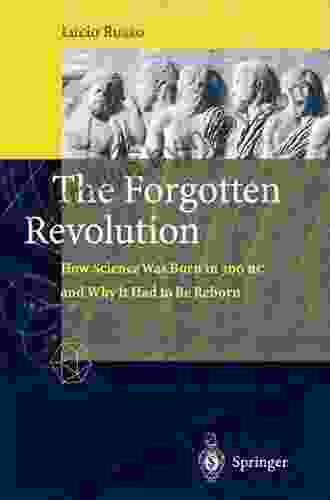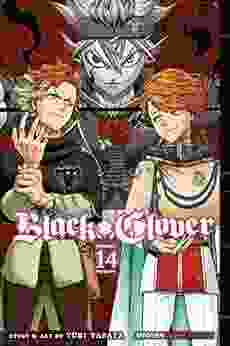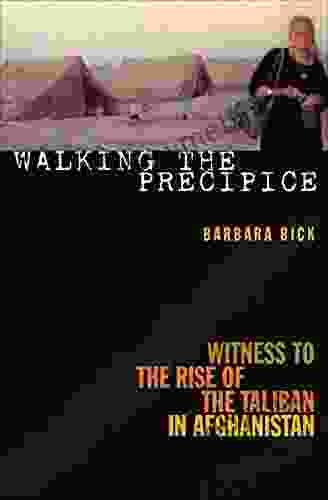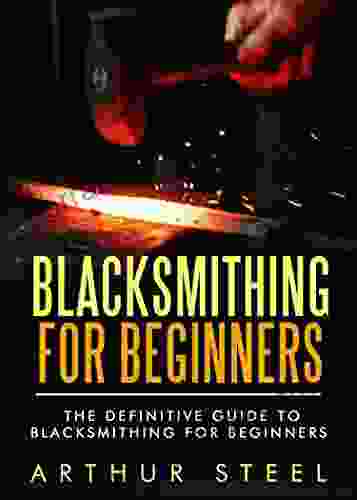How Science Was Born In 300 BC and Why It Had To Be Reborn

Science, as we know it today, is a relatively new phenomenon. It emerged in its modern form only in the 16th and 17th centuries, with the advent of the scientific revolution. However, the roots of science can be traced back much further, to the ancient Greek philosophers of the 4th century BC.
One of the most important figures in the history of science is Aristotle. Born in 384 BC, Aristotle was a student of Plato and later became a tutor to Alexander the Great. Aristotle was a prolific writer, and his works covered a wide range of subjects, including physics, metaphysics, ethics, and politics.
4.3 out of 5
| Language | : | English |
| File size | : | 11294 KB |
| Text-to-Speech | : | Enabled |
| Screen Reader | : | Supported |
| Enhanced typesetting | : | Enabled |
| Print length | : | 508 pages |
Aristotle's approach to science was based on observation and experience. He believed that the best way to understand the world was to observe it carefully and to collect data. Aristotle also developed a system of logic that allowed him to draw inferences from his observations.
Aristotle's work had a profound impact on the development of science. His methods of observation and experience became the foundation of the scientific method, which is still used by scientists today. Aristotle's logic also played a major role in the development of mathematics and philosophy.
However, Aristotle's science was not without its limitations. Aristotle was a brilliant thinker, but he was also a product of his time. He lived in a world where superstition and magic were still widely believed. As a result, some of Aristotle's scientific ideas were based on faulty assumptions.
For example, Aristotle believed that the Earth was the center of the universe and that the sun and the planets revolved around it. This geocentric model of the universe was widely accepted for centuries, but it was eventually replaced by the heliocentric model, which placed the sun at the center of the solar system.
Another limitation of Aristotle's science was his reliance on authority. Aristotle believed that the writings of earlier philosophers, such as Plato, were authoritative and that they should not be questioned. This prevented Aristotle from making some important scientific discoveries that could have been made if he had been more willing to challenge the status quo.
Despite its limitations, Aristotle's science was a major step forward in the development of human knowledge. His methods of observation and experience, and his system of logic, laid the foundation for the scientific method that is still used by scientists today. Aristotle's work also played a major role in the development of mathematics and philosophy.
The Rebirth of Science
The scientific revolution of the 16th and 17th centuries was a time of great intellectual upheaval. New ideas about the universe and the human place in it challenged the traditional beliefs of the time. One of the most important figures of the scientific revolution was Nicolaus Copernicus, who proposed that the sun, not the Earth, was the center of the solar system.
Copernicus's theory was met with resistance from the Catholic Church, which had long held to the geocentric model of the universe. However, Copernicus's theory was eventually accepted, and it laid the foundation for the modern understanding of the solar system.
Another important figure of the scientific revolution was Francis Bacon, who developed a new method for scientific inquiry. Bacon believed that the best way to understand the world was to conduct experiments and to collect data. He also believed that scientists should be skeptical of traditional beliefs and that they should be willing to challenge the status quo.
Bacon's methods were adopted by other scientists, such as Galileo Galilei and Isaac Newton, who made some of the most important discoveries in the history of science. Galileo's observations of the planets and moons led him to support Copernicus's theory of heliocentricity. Newton's laws of motion and gravity laid the foundation for modern physics.
The scientific revolution was a major turning point in the history of human knowledge. It led to a new understanding of the universe and the human place in it. It also laid the foundation for the modern scientific method, which is still used by scientists today.
Why Science Had to Be Reborn
Science had to be reborn because the traditional beliefs of the time were no longer adequate to explain the world around us. The geocentric model of the universe, for example, could not explain the observed motions of the planets. Similarly, the traditional medical beliefs of the time could not explain the causes of disease.
The scientific revolution was a time of great intellectual upheaval, but it was also a time of great progress. New ideas about the universe and the human place in it challenged the traditional beliefs of the time. Scientists began to use new methods of inquiry, such as observation and experiment, to understand the world around them.
The scientific revolution led to a new understanding of the universe and the human place in it. It also laid the foundation for the modern scientific method, which is still used by scientists today.
The Importance of Science
Science is one of the most important aspects of modern society. It has led to countless technological advances that have improved our lives in countless ways. Science has also helped us to understand the universe around us and our place in it.
Science is also essential for solving the challenges that we face today. Climate change, for example, is a major threat to our planet. Scientists are working to understand the causes of climate change and to develop solutions to mitigate its effects.
Science is a powerful tool that can be used to make the world a better place. By understanding the world around us, we can make informed decisions about how to live our lives and how to solve the challenges that we face.
Science is a relatively new phenomenon, but it has had a profound impact on human history. Science has led to countless technological advances that have improved our lives in countless ways. Science has also helped us to understand the universe around us and our place in it.
Science is a powerful tool that can be used to make the world a better place. By understanding the world around us, we can make informed decisions about how to live our lives and how to solve the challenges that we face.
4.3 out of 5
| Language | : | English |
| File size | : | 11294 KB |
| Text-to-Speech | : | Enabled |
| Screen Reader | : | Supported |
| Enhanced typesetting | : | Enabled |
| Print length | : | 508 pages |
Do you want to contribute by writing guest posts on this blog?
Please contact us and send us a resume of previous articles that you have written.
 Book
Book Novel
Novel Page
Page Chapter
Chapter Text
Text Story
Story Genre
Genre Reader
Reader Library
Library Paperback
Paperback E-book
E-book Magazine
Magazine Newspaper
Newspaper Paragraph
Paragraph Sentence
Sentence Bookmark
Bookmark Shelf
Shelf Glossary
Glossary Bibliography
Bibliography Foreword
Foreword Preface
Preface Synopsis
Synopsis Annotation
Annotation Footnote
Footnote Manuscript
Manuscript Scroll
Scroll Codex
Codex Tome
Tome Bestseller
Bestseller Classics
Classics Library card
Library card Narrative
Narrative Biography
Biography Autobiography
Autobiography Memoir
Memoir Reference
Reference Encyclopedia
Encyclopedia Barbara Luke
Barbara Luke Aubrey C Daniels
Aubrey C Daniels Becky Albertalli
Becky Albertalli Belden C Lane
Belden C Lane Stephen Whitty
Stephen Whitty Barry Render
Barry Render Athol Williams
Athol Williams Sean Hepburn Ferrer
Sean Hepburn Ferrer Barbara Demick
Barbara Demick Joel A Dombrowski
Joel A Dombrowski Avi Gil
Avi Gil Giuseppe Cristiano
Giuseppe Cristiano Laura Schenone
Laura Schenone Elias Dabbas
Elias Dabbas Betty J Ackley
Betty J Ackley Harville Hendrix
Harville Hendrix Barry W Holtz
Barry W Holtz Max Finkelstein
Max Finkelstein Ashley Mears
Ashley Mears Barbara Henderson
Barbara Henderson
Light bulbAdvertise smarter! Our strategic ad space ensures maximum exposure. Reserve your spot today!

 William Wordsworth333 of the Best Head Scratching Brain Teasers, Trick Questions, and Logic...
William Wordsworth333 of the Best Head Scratching Brain Teasers, Trick Questions, and Logic...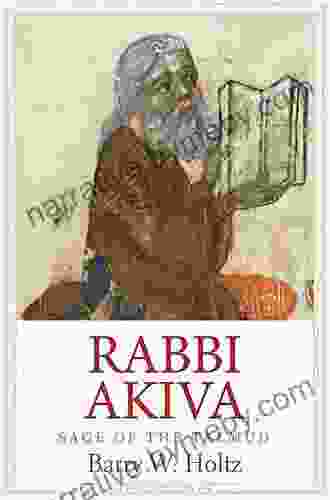
 Ernesto SabatoRabbi Akiva: Sage of the Talmud - A Must-Read for Jewish History and Thought
Ernesto SabatoRabbi Akiva: Sage of the Talmud - A Must-Read for Jewish History and Thought Paulo CoelhoFollow ·13.6k
Paulo CoelhoFollow ·13.6k Stephen FosterFollow ·3.3k
Stephen FosterFollow ·3.3k Mario Vargas LlosaFollow ·11.5k
Mario Vargas LlosaFollow ·11.5k Frank MitchellFollow ·3k
Frank MitchellFollow ·3k Enrique BlairFollow ·19.2k
Enrique BlairFollow ·19.2k Herb SimmonsFollow ·16.9k
Herb SimmonsFollow ·16.9k James GrayFollow ·3k
James GrayFollow ·3k Darrell PowellFollow ·2.1k
Darrell PowellFollow ·2.1k

 Ian McEwan
Ian McEwanWhy Didn't Anyone Say Anything? Uncovering the Hidden...
By [Author's...
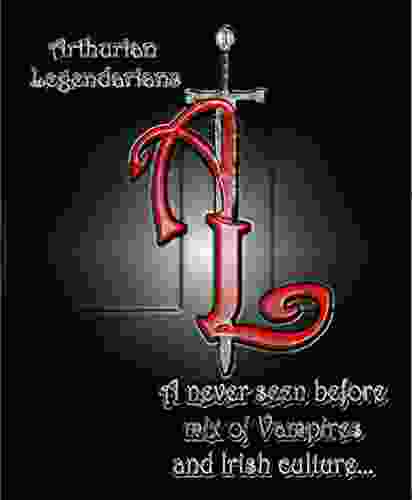
 William Wordsworth
William WordsworthArthurian Legendarians: Faithless One - Part One – A...
In the realm of legendary tales, the...
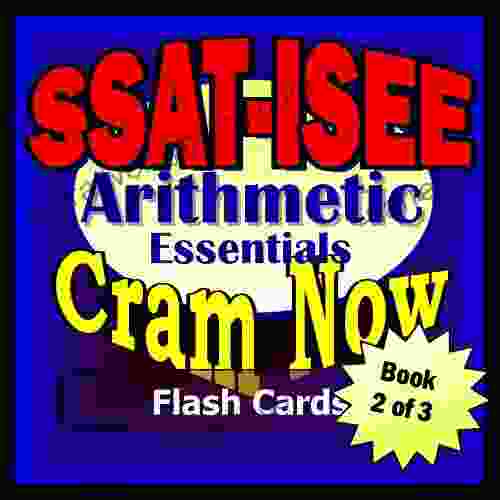
 Corey Hayes
Corey HayesSSAT ISEE Prep Test: Arithmetic Review Flash Cards Cram...
Are you preparing for the SSAT or ISEE exam?...

 Robert Louis Stevenson
Robert Louis StevensonUnveiling the Essential Guide to Compliance: BCBS 239...
In the ever-evolving...
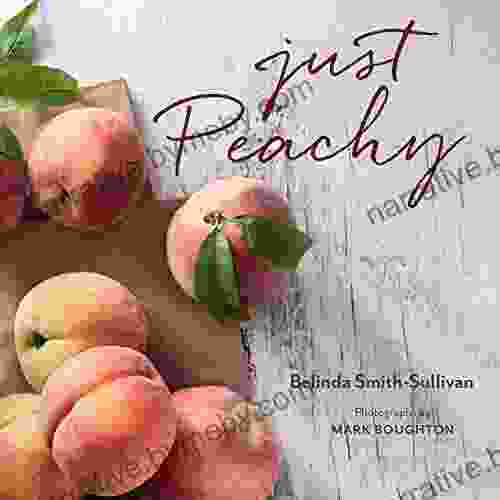
 Javier Bell
Javier BellJust Peachy: A Tale of Sweetness and Sassiness
Immerse yourself in a...

 Brent Foster
Brent FosterStep-by-Step Instruction Manual to Building a Real Estate...
Are you eager to embark on the...
4.3 out of 5
| Language | : | English |
| File size | : | 11294 KB |
| Text-to-Speech | : | Enabled |
| Screen Reader | : | Supported |
| Enhanced typesetting | : | Enabled |
| Print length | : | 508 pages |


